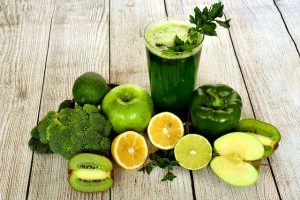What are antioxidants?
“Antioxidant” is a general term for any compound that that inhibit oxidation. Oxidation is a chemical reaction that can produce free radicals.

Antioxidants counteract unstable molecules called free radicals that damage DNA, cell membranes, and other parts of cells. Because free radicals lack a full complement of electrons, they steal electrons from other molecules thereby leading to chain reactions that may damage the cells of organisms.
Antioxidants neutralize free radicals by giving up some of their own electrons. They act as a natural “off” switch for the free radicals. This helps break a chain reaction that can affect other molecules in the cell and other cells in the body.
How free radicals function?
Free radicals are molecules produced when your body breaks down food or when you’re exposed to several environmental and other factors including:
Some internally generated sources of free radicals are:
- Inflammation
- Excessive Exercise
- Mental stress
- Ischemia/reperfusion injury
- Infection
- Aging
Some externally generated sources of free radicals are:
- Cigarette smoke
- Environmental pollutants
- Radiation
- Alcohol intake
- Heavy metals
- Certain drugs
- Industrial solvents
- Ozone
The effects of free radicals
If not regulated properly, prolonged oxidative stress can cause a variety of chronic and other health disorders such as:
- cardiovascular disease
- cancer
- rheumatoid arthritis
- vision loss
- neurological diseases
How can antioxidants benefit our health?
“Antioxidants protect the skin by counteracting free radical production.” These free radicals, can assault skin, damaging healthy cells and creating oxidative stress. “Antioxidants protect your skin from this and help reduce pigmentation and fine lines and wrinkles.
- Prevent a variety of chronic diseases
- Protects our body immune system
- Reduces the formation of free radicals
- Promote the growth of normal cells
- Protects cells against premature and abnormal ageing
Healthy Foods High in Antioxidants
Plant based foods such as fruits and vegetables are the major source of antioxidants. The following are the nutrients and foods that are rich in antioxidants.
- Vitamin C: orange, papaya, grapefruit, strawberries, kiwifruit, mangoes, kiwi, kale, lemon, Brussels sprouts, broccoli, blackcurrants, spinach, capsicum, leafy greens, cauliflower, cantaloupe, tomatoes, sweet potato, red, green, or yellow peppers.
- Vitamin E: almonds, sunflower seeds, peanuts, whole grains, red peppers, green leafy vegetables, pumpkin, mangoes, avocado, papaya, spinach (boiled), broccoli (boiled) and vegetable oils.
- Carotenoids including beta-carotene and lycopene: carrots, beets, spinach, , asparagus, peas, broccoli, cantaloupe, bell peppers, apricots, oranges, mangoes, pumpkin, kale, pink grapefruit, sweet potato, watermelon and tomatoes.
- Selenium: brown rice, wheat, corn and other whole grains, legumes, cheese, nuts, eggs, poultry and sea food.
- Zinc: nuts, sesame seeds, pumpkin seeds, cashews, whole grains, chickpeas, beans, lentils, dairy products, poultry and sea food.
- Phenolic compounds: apples, grapes, berries, onions, cocoa and spices.
Should you take antioxidant supplements?
- Yes, any individual can take antioxidant supplements as a preventive medicine. But, one should consult physician for any specific disorder

Prof. Venkata Kiran Kumar Mandlem is Head Of Department in CMR College of pharmacy Hyderabad . He Completed PhD in Pharmaceutical Sciences from Andhra University . More info about him MV Kiran Linkedin
